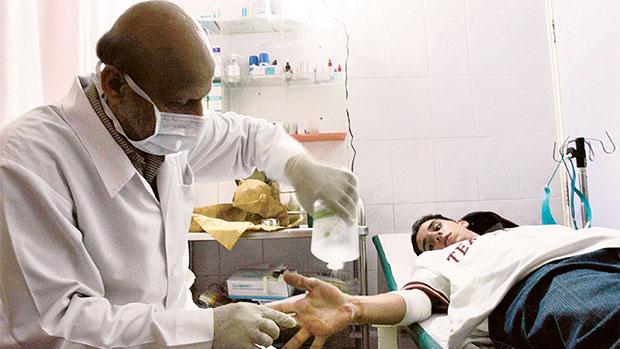
Abu Dhabi: A bigger pool of healthcare professionals is now available to medical facilities in the UAE, following the implementation of the unified professional qualification requirements earlier this month, senior health-care officials announced in the capital on Sunday.
This is because the requirements now recognise medical degrees from many more countries, and they have also reduced the years of experience professionals need in order to be licensed as medical consultants in the UAE, said Dr Khalid Al Jaberi, director of health regulation at the Health Authority Abu Dhabi (Haad).
“Not only do the new UAE-wide regulations grant doctors greater mobility, we believe that they will also establish a minimum quality standard that will be applied throughout the country. And because a committee of medical experts will review these requirements every two to three months, it will ensure that professional standards here are kept abreast of developments worldwide,” Dr Al Jaberi told Gulf News.
He was speaking on the sidelines of a press conference held to discuss the changes brought about by the newly launched professional requirements.
In Abu Dhabi emirate, the Haad oversees the licensing of health care, while the process is supervised in Dubai by the DHA. The UAE Ministry of Health is responsible for licensing professionals in the northern emirates. The unified professional requirements, which aim to enhance health-care quality, have been in use since October 12. They were drawn up by a committee that included members from all three health regulatory entities.
According to officials at the conference, nearly 43,000 health-care professionals have been licensed in Abu Dhabi since the licensing procedure was mandated by the Haad. The authority issues between 5,000 and 8,000 new medical licences a year. While 50 per cent of these are for new nursing staff, about 30 per cent are for new doctors or physicians.
Under the new standards, medical qualifications obtained by physicians from outside the UAE are classified into three tiers. Tier 1 consists of countries that equip medical graduates with the most advanced and up-to-date qualifications, including Australia, Canada, Ireland, New Zealand and the United States. Countries that have less rigorous medical programmes are classified in the second or third tiers.
“A Tier 2 physician earlier had to have eight years of post-internship experience to qualify as a consultant. We have now reduced this requirement to five years,” Dr Al Jaberi explained.
At the same time, Emirati and expat graduates of UAE-based medical colleges no longer need to have two years of work experience in order to be licensed. Instead, they can simply work in the UAE at a secondary or tertiary hospital for at least two years.
“This eliminates the hassle for graduates to seek experience abroad before being able to work in the UAE, and should attract more individuals to the field of health care,” the official said.












